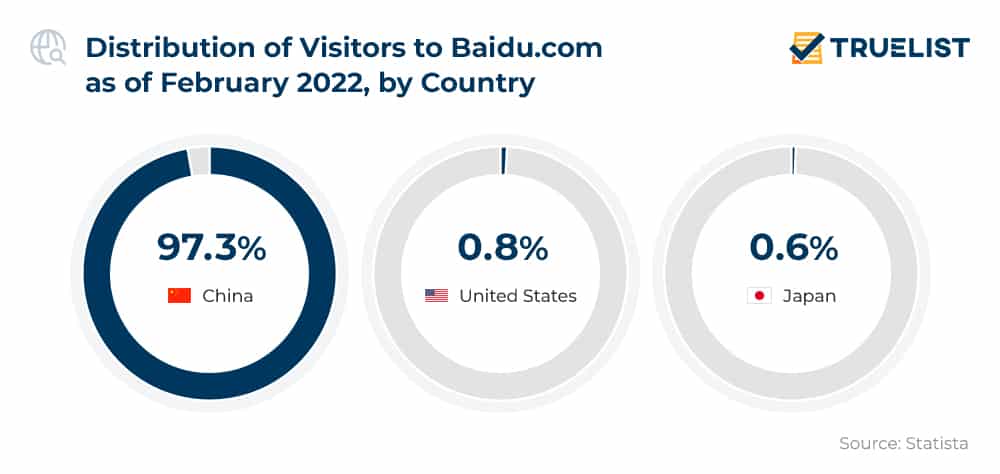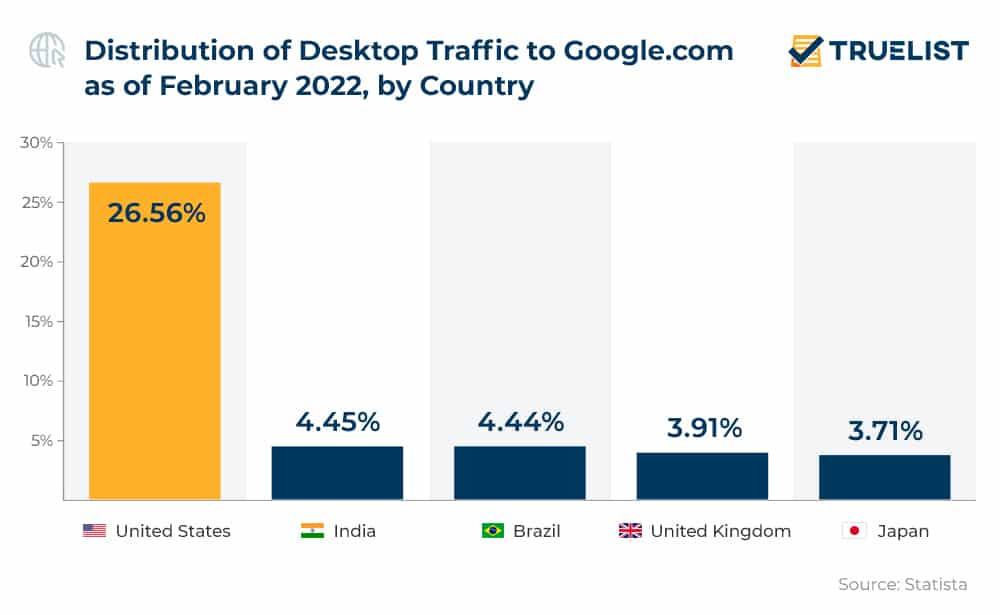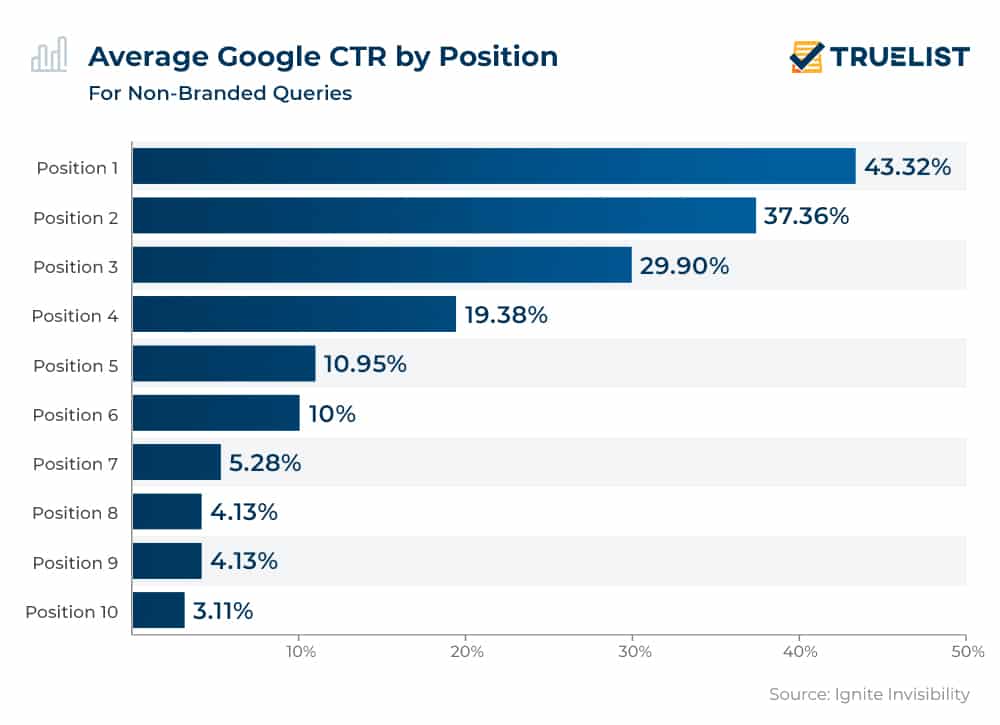SEO is, without a doubt, one of the most effective ways to bring new customers to your website. It also helps marketers build a better user experience and more importantly, boost brand credibility. Search engine statistics show that the ever-changing search engine algorithms make some SEO strategies more powerful while rendering others obsolete. To keep up with current trends, one must understand what’s working and what’s not. We’ve put together some essential stats and facts on search engines that can shed some light on how to improve your SEO efforts.
Search Engine Statistics (Editor’s Choice)
- Google is the #1 desktop search engine with a 67.92% market share. (Netshare)
- DuckDuckGo’s daily average searches increased by 62% in 2020. (Ghacks)
- There are more than 1.2 trillion queries per year on Google. (Internet Live Stats)
- 61.7% of desktop search queries in the US are generated by Google in January 2022. (Statista)
- 8% of all search queries on Google are questions. (Moz)
- Featured snippets in search boost CTR by 114%. (HubSpot)
- 32% of all ecommerce purchases come from organic search. (Statista)
- There are 60% more searches for “__for me” on Google from mobile devices. (ThinkWithGoogle)
Search Engine Stats Rundown
1. Google is the #1 search engine used on desktop with a 67.92% market share.
It might get boring seeing Google everywhere but yet again, it is ranked #1, and compared to other search engines, it stands unrivaled. Google is the leading desktop search engine with a market share of 67.92%. While not as big as on mobile, it’s still miles ahead of Baidu’s 15.52%, Bing’s 13.12%, and Yahoo’s 2.11% market share.
(Netshare)
2. Search engine traffic statistics show Bing’s share of desktop traffic amounted to 12.24% in December 2020.
Not bad at all, given the competition. In 2016, Bing only had 8.11% of the desktop search engine market share, but 2019 data indicate that the number increased to 12.49%. This is partly because most desktops are powered by Windows, and older generations still tend to use Microsoft Edge as their primary browser.
(CleverSolution)
3. DuckDuckGo’s daily average searches increased by 62% in 2020.
Even though compared to Google’s search engine traffic stats, numbers about this privacy-first search engine are significantly lower, DuckDuckGo is breaking records. In 2020, this search engine noted an increase in the daily average searches by a solid 62%, meaning in the past two years alone the company managed to generate over one third of all its searches. More good news is that this year is already looking like a record-making year for DuckDuckGo as the search engine broke the 100 million search queries mark on a single day on January 11, 2021.
(Ghacks)
4. 31% of survey respondents aged 65+ prefer Yahoo compared to 24% who choose Google.
While Google reaches new heights, search engine statistics show that the Yahoo market share plummets. Nevertheless, Yahoo still remains one of the top search engines in the US, ranking #4 on the desktop search market share. Although the decreased mobile traffic by 1.59% has automatically pushed it from the 2nd to the 3rd position giving way to Baidu.
(CleverSolution)
5. Baidu is mostly used in China (97.3%).
The list with the most popular search engines would be incomplete without China’s Baidu. Search engine stats indicate that the platform is also used in the US, where it holds 0.8% of the market share. Other countries where Baidu is somewhat popular is Japan (0.8%).
(Statista)

6. DuckDuckGo produced a more significant share of mobile organic search (65%) visits compared to Google (64%) in 2019.
DuckDuckGo beat Google not just with user privacy protection, but with increased mobile usage as well. The newest search engine usage statistics show mobile devices generated 65% of the share of DuckDuckGo’s organic search visits which is higher by 1% compared to Google’s 64%. It seems that after Wikileaks, people started caring about their privacy more.
(Marketing Charts)
7. There are more than 1.2 trillion queries per year on Google.
Compared to the queries searched back in 1999 (500,000 queries per day), Google has exceeded all expectations beating competitors like Yahoo, Alta Vista, and AOL. The last official search engine traffic stats we have from Google showed 1.2 trillion searches per year, but that was back in 2012. Based on those numbers plus projections, and considering 3.9 billion daily searches are made now, surely the 1.2 trillion threshold has long been exceeded.
(Internet Live Stats)
8. With 56.03% search traffic, Yandex Ru is taking over the Russian market.
Google’s search engine market share in most countries worldwide is dominant but there are some markets where it faces serious competition. Search engine trends indicate that although Alphabet’s search engine is currently the leader on the Russian market, the Russian search engine, Yandex which is also available in Cyrillic, is breathing down its neck with 56.03% market share.
(Statcounter)
US Search Engine Market Share
9. The Google market share in the US stands at 87.71%.
Search engine stats show that Google has dominated the market ever since its launch. Recent data shows that the tech giant reigns the US market with an 87.71% share. The rest is divided between Bing with 6.72%, Yahoo with 2.92%, and DuckDuckGo with 2.26% share.
(Statcounter)
10. With a share of 93.25%, Google dominated the US mobile market in January 2022.
The tech giant has a market share of 93.25% on the local mobile market with an inclination to grow even further. Google search engine facts mention that this is because both Android OS devices and Apple’s mobile browser, Safari, have been using Google as the default search engine. Plus, people are just used to viewing Google as the best search engine on the internet.
(Statista)
11. 61.7% of all desktop search queries in the US are generated by Google in January 2022.
Search engine usage stats also show Verizon Media (former Yahoo) generated 2.28 million online searches in January 2022. So it appears Google is not only the winner in the battle for the biggest mobile search provider, but with over 60% of desktop queries in the US, it is also the lord of the core searches.
(Statista)
12. 26.56% of Google’s online traffic comes from the US.
Google gets around a third of its users from the US, according to search engine user statistics. After all, the US is a global tech superpower, and Google HQ is located there so it makes sense that 26.56% of its users would be ‘native’. Other significant user contributors are India (4.45%), Brazil (4.44%), the UK (3.91%), and Japan (3.71%).
(Statista)

13. 34.09% of Bing users come from the US.
While Bing was launched in 2009, it is one of the oldest Internet search engines out there, tracing its origins to the early Microsoft products like MSN and Windows Live search. Search engine usage statistics mention that the good old Internet Explorer accounts for 87% of Bing’s users. Bing search engine market share data also show that most of Bing’s users originate from the US (34.09%), China (22.29%), and Japan with 7.43%.
(CleverSolution, Aborg)
Search Engine Statistics to Help Your SEM Efforts
14. 12.29% of search queries show featured snippets.
Google added featured snippets to answer users questions immediately in a straightforward way. One of the most valuable data shows that snippets usually appear in queries that have a list (types, products, etc.). Even if it decreases traffic on websites, the snippet enhances brand exposure to millions of users.
(Ahrefs)
15. 48% of mobile queries are voice searches.
Search engine usage statistics reveal nearly half of mobile queries are voice searches and the percentage is growing with users turning to their phones to inquire about all sorts of things. They use it to search for directions while driving (52%), place a call (51%), text someone (50%), check the weather (49%), or to simply play their favorite music (49%).
(Search Engine Land)
16. Search engine optimization stats show that different search engines produce 300% more traffic than social media advertising.
And you thought that a two-month Facebook campaign is more effective than SEO? Incorrect. Even if SEO is a slow process, it drives more traffic to sites than social media. At the end of the day, people like to see content that caters to their needs, and want to believe they see it because they’ve discovered it, not because it’s sponsored.
(Digital Marketing)
17. 8% of all search queries on Google are questions.
Google is the place where people ask questions and get answers. Queries starting with “where”, “who,” “when”, and “is” make up 8% of all search queries on Google, according to Google search engine statistics. How many times have you looked for the best restaurants nearby? Or maybe you just wanted to know the legal age of drinking in Ireland, for your next spring break trip. (It is 18, btw.)
(Moz)
18. Three-quarters of all users click results only on the first page.
Search engine optimization stats indicate that a massive 75% of searchers click on the link ranked highest and rarely bother to look any further. More often than not, they find the answer on the first page, specifically among the top three results and their search process ends there. Note that optimized content that provides the best answer to the search query will always show as the top result.
(Blue Ops)
19. 99.2% of all top-ranking sites have at least one other domain linking to them.
Google has repeatedly advised SEO experts against focusing on building links. Google search engine facts, however, show that without a single link, you cannot make it to the top. 77.8% of top results also have at least one external link pointing at a domain. Numerous SEO case studies debunk that statement and demonstrate that link building is still an essential method of ranking higher on Google.
(Moz)
20. The first result gets an average of 43.32% of the clicks.
Even the top result doesn’t get all the clicks but when you compare it to the click-through rate of the 10th position (3.11%), it is significantly more. According to search engine ranking statistics, the first three results get the most clicks. The first position usually gets an average of 43.32%, the second lands 37.36% while the third gets 29.90%. In general, people like to check the first three results of their search before deciding to click-through or which page is worthy of their attention.
(Ignite Invisibility)

21. Featured snippets in search boost CTR by 114%.
A query with a featured snippet, as search engine optimization statistics reveal, directly impacts the traffic that top results receive organically. A recent study by HubSpot showed that when a search query has a featured snippet, especially for high-volume keywords, there is an increase in CTR by more than 114%.
(HubSpot)
22. 53% of smartphone users search for directions to a local store.
Google Maps is a gift that keeps giving, helping us not get lost and quickly arrive at our destinations. Additionally, 54% use mobile to see the business hours of an organization, while 50% turn to Google to find the local store address.
(Think With Google)
23. 56% of local businesses have not yet claimed their listing on Google My Business.
Search engine optimization statistics show that the quickest and easiest way for a company to appear on the search queries is through Google My Business. It seems, however, that 56% of all businesses don’t have the slightest idea of how many customers they are missing out on.
(Search Engine Land)
24. Websites with a blog get their pages 434% more indexed than those without.
Search engine ranking statistics prove Google loves original content and rewards it with a higher rating. The sites with blogs get 434% more indexed pages. Additionally, blogging stats indicate websites with a blog get 97% more indexed links on Google.
(Techclient)
25. 32% of all ecommerce purchases come from organic search.
The SEO percentage is significant, considering the expense of social media ads and their click-to-rate. Small and medium businesses genuinely understand the importance of generating solid search engine traffic, but that only happens after they struggle a bit with social media marketing.
(Statista)
26. Search engine traffic statistics show that Google has an average 8.5 organic result per page on mobile.
On the desktop, users can set the number of results manually. They can either get 10, 20, 30, 50, or 100 results. On the other hand, on mobile, the average number is 8.5 results per page. Depending on the search query, whether it contains a featured snippet or video results, they can go from 6 to 12.
(Search Metrics)
27. Google is becoming more personal as there are 60% more searches for “__for me” on mobile devices.
When people need personal advice, they turn to family or friends. And yet, Google search engine stats show that people turn to the platform as well. There has been a 60% growth in mobile searches for “__for me” in the last three years, and more than 80% growth in “__should I __”.
(ThinkWithGoogle)
The Takeaway
In the world of SEO where there is just too much competition—not to mention the changing algorithms—valuable information can be the deciding factor whether your business will succeed or fail. After all, success requires patience, excellent content, and, most importantly, building strong links on trustworthy authority websites, and this is exactly what our search engine statistics confirm. At the end of the day, it seems Google is the main front where you should fight your battle for a higher ranking and once you’ve won there, you are most likely conquering other search engines as well.
Sources: Netshare, CleverSolution, Ghacks, Statista, Marketing Charts, Internet Live Stats, Statcounter, Statcounter, Statista, Statista, Statista, Aborg, Ahrefs, Search Engine Land, Digital Marketing, Moz, Blue Ops, Moz, Ignite Invisibility, HubSpot, Think With Google, Search Engine Land, Techclient, Statista, Search Metrics, ThinkWithGoogle

